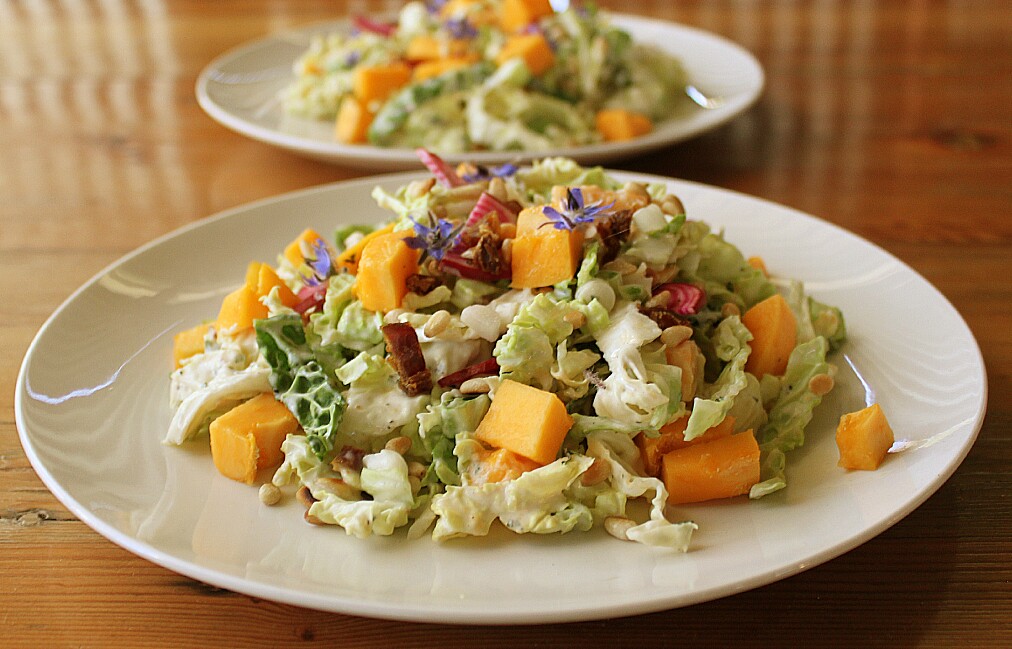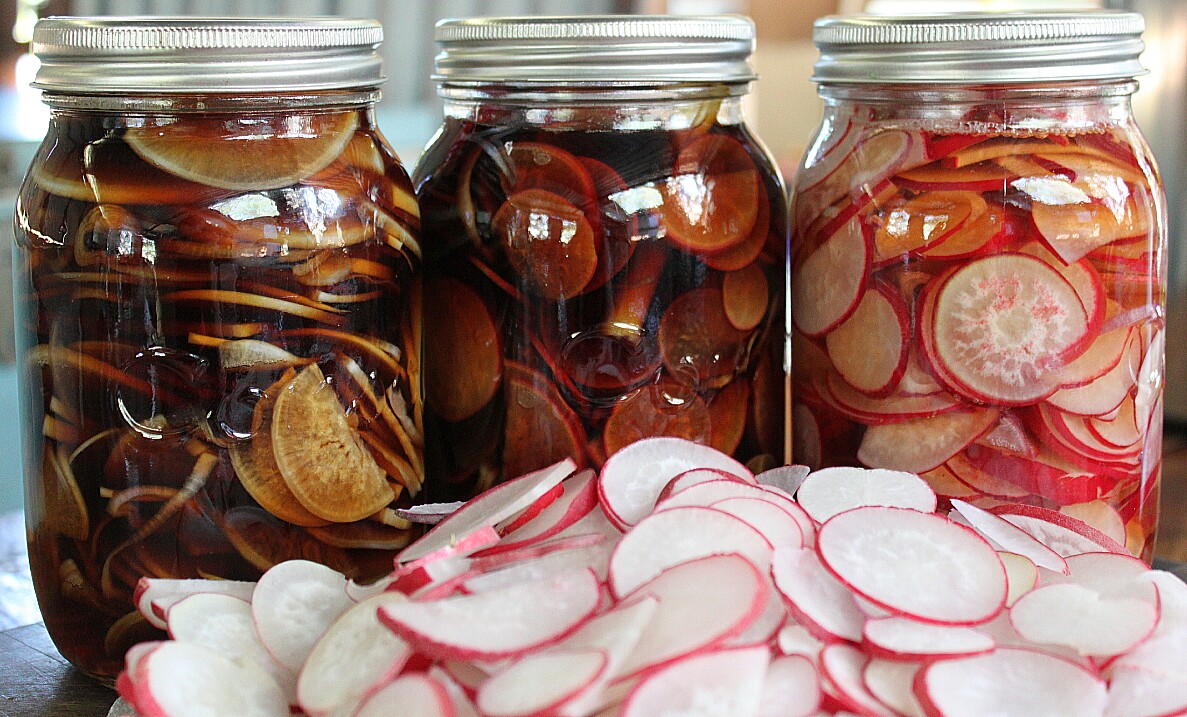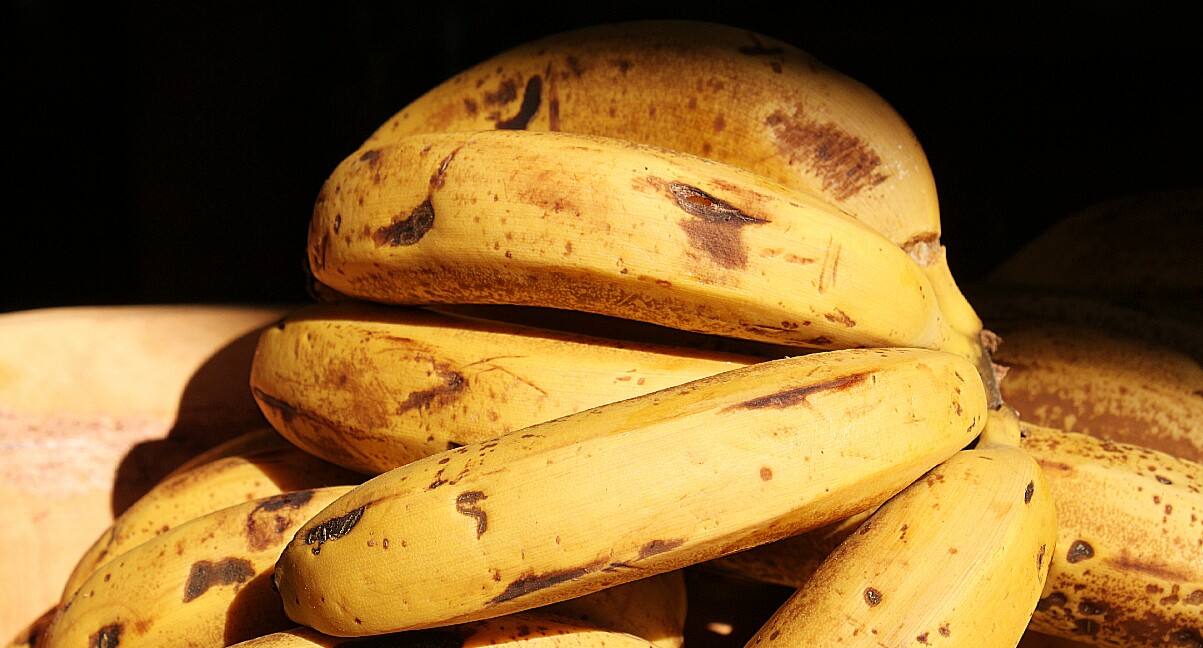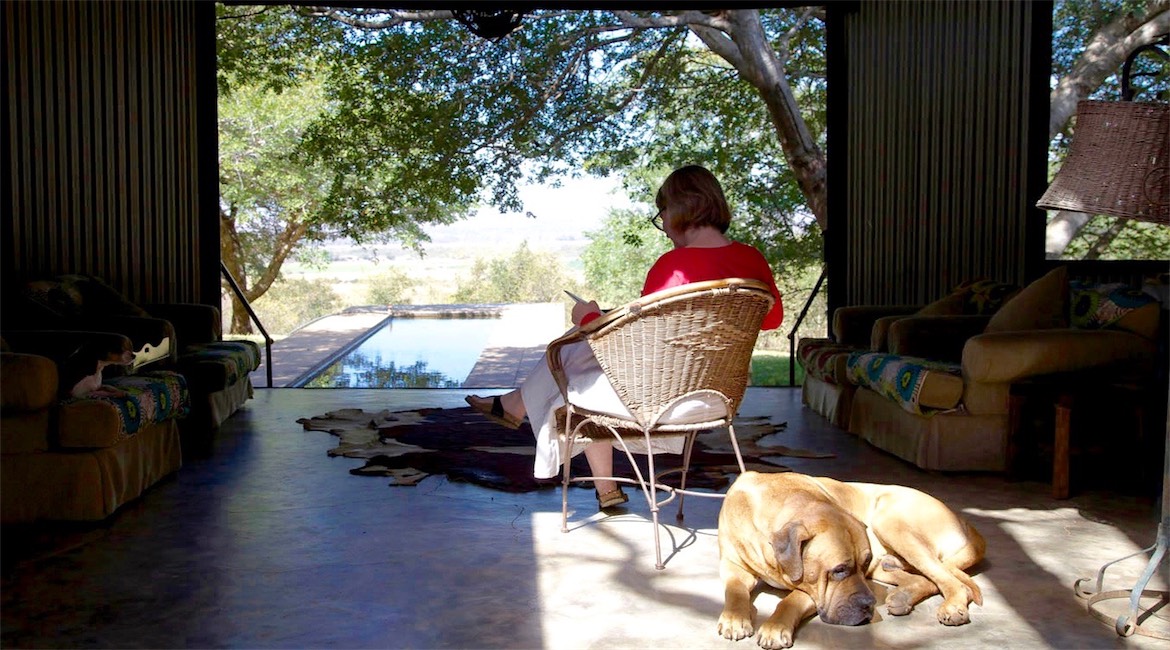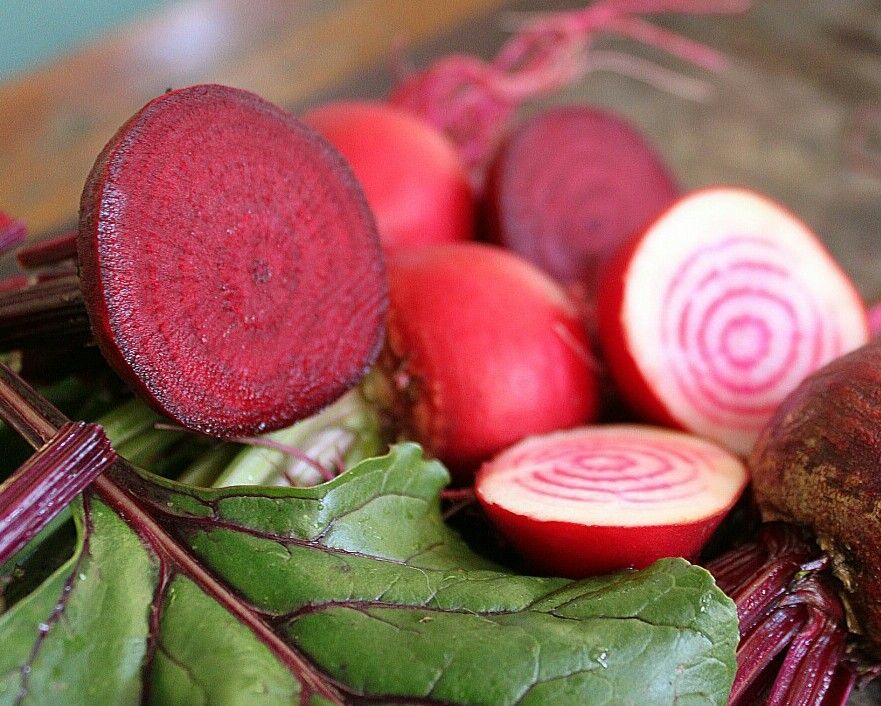At last it’s papaya season. Soft, succulent, coral papaya to feast on for at least two months … that’s if Zazu’s bigger-beaked, insatiable cousins, the Trumpeter Hornbills, don’t beat us to it. They fly in at dawn and dusk, a silent squadron of sometimes 50 bombers.
We traveled upcountry for a wedding and were gone from the farm for 10 days. In our absence the daytime temperature shot skyward, and we returned to a super-sized radish eruption. A whole bed of half-buried red, pink, white and purple radishes were pushing their way up out of the soil, screaming “pull me!” They had gone from marble to golf ball while we weren’t looking.
Bananas: a big-hearted ancient fruit.
I’ve been looking forward to writing this post about bananas since I started blogging, but stalled and delayed because I was unsure where to start. The Latin word for banana is Mūsa. Translated into English it means Muse: a source of inspiration, a guiding spirit. The banana, it seems, dates back to the beginning of time.
A month or so ago, Molly Moynahan, a novelist and writing teacher living in Chicago, invited me to participate in a Blogger Hop, something I’d never heard about being such a newbie to the blogosphere. It’s an opportunity, Molly later explained, to open up the genre and introduce your blog to new readers.
We live a short distance upstream from the largest curtain of falling water in the world. In high-water season nine million cubic meters cascade over Victoria Falls in a second. Such is its force on a clear day we can see the plumes of spray-smoke rising high into the sky all the way from our farm.
Young beetroot just pulled from the garden.
Tom Robbins, the American author, had a thing about beetroot. Just consider these lines from his novel, Jitterbug Perfume:
“The beet is the melancholy vegetable, the one most willing to suffer. You can’t squeeze blood out of a turnip. … The beet is the murderer returned to the scene of the crime.

